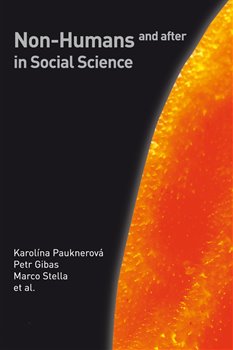Menu
košík
0
/
Knihy/
Populárně naučná pro dospělé/
Všeobecné a ostatní/
Gibas, Petr - Non-Humans and after in Social Science
Gibas, Petr - Non-Humans and after in Social Science
0% (0 hodnocení)
Jazyk: anglicky
Počet stran: 266
Vazba / Podoba: brožovaná
Nakladatelství: Pavel Mervart
Rok vydání: 2017
Počet stran: 266
Vazba / Podoba: brožovaná
Nakladatelství: Pavel Mervart
Rok vydání: 2017
213 Kč
Skladem
ks
| katalogové číslo: | K230997 |
| EAN: | 9788074651991 |
| e-shop: | |
| Vydavatel: | Pavel Mervart |
| cena bez DPH: | 213 Kč |
| cena vč. DPH: | 213 Kč |
popis
parametry
soubory a odkazy
This book is the third in a series exploring the potential of non-humans to illustrate and inspire an approach in which the pre-established boundaries of scholarly thought and practice blur so that new directions in theory and research can emerge. Humans and non-humans are co-present in the world. For long, they have seemed and been thought of as an ontological binary opposition with humans elevated above the rest. As this book series testifies, recently, there has been a move in social sciences towards non-humans as they provide new prisms to look at issues that have for long been of interest to social sciences.This growing interest in non-humans shatters the ontological assumptions about the difference between humans and the rest of life forms as well as reappraises the relationship between humans (and non-humans) and inanimate objects. What the individual chapters in this book as well as the volume as such elaborate on is the fact that humans and various non-humans are not as separate as they have been believed to be; they sometimes encounter and even co-create each other to the extent where the delimitations start to disappear.
Non-humans differ from humans in many respects. However, at certain moments, the difference does not necessarily have to be what governs the relationship between them. To understand what happens when humans and non-humans encounter each other needs a more nuanced perspective. This is what the individual chapters in this book hope to achieve. What the book calls for and the chapters exemplify is a need of a close reading of how the co-presence of diverse entities, humans as well as various non-humans, influences their presence and the boundaries between them at given moments of sharing, forming and inhabiting the world.
Non-humans differ from humans in many respects. However, at certain moments, the difference does not necessarily have to be what governs the relationship between them. To understand what happens when humans and non-humans encounter each other needs a more nuanced perspective. This is what the individual chapters in this book hope to achieve. What the book calls for and the chapters exemplify is a need of a close reading of how the co-presence of diverse entities, humans as well as various non-humans, influences their presence and the boundaries between them at given moments of sharing, forming and inhabiting the world.
| Jazyk | anglicky |
|---|---|
| Rok vydání | 2017 |
| Autor | Gibas, Petr |
| Vazba / Podoba | brožovaná |
Diskuze je prázdná.
přidat příspěvek do diskuze
Internetový obchod KNIŽNÍ ARCHA
E-shop system: E-commerce PRO 4.0 © 2025 GlobeWeb Czech s.r.o. | Mapa webu


